This event took place recently. You can now:
In depth Neuroradiology Course 2024
Stream it now, with the on-demand catch-up service
- This course has been designed for all consultant general radiologists, neurologists, and senior trainees wishing to further their understanding and reporting of neuroradiology in clinical practice.
- Format: Short theory lectures followed by interactive interpretation and reporting sessions with your own PACS access. To provide the busy, hands-on Radiologist with a practical, stimulating and comprehensive update on interpretation and reporting practice in Neuroradiology
- CPD: 12 credits with certificate in accordance with the CPD Scheme of the Royal College of Radiologists (RCR), UK
Quick links
DAY ONE
50 minutes
Anatomy, normal variants and MR imaging sequences
Dr Sam Kular
Consultant Neuroradiologist, Sheffield Teaching Hospitals
- Normal variants
50 minutes
Paediatric Pathologies
Prof Stavros Stivaros
Head of Paediatric Neuroradiology, Royal Manchester Children’s Hospital
- Head injuries
- Tumours
50 minutes
Other Vascular Disorders
Dr Ata Siddiqui
Consultant Neuroradiologist, King's College Hospital, London
50 minutes
Neuro-ophthalmology
Dr Ata Siddiqui
Consultant Neuroradiologist, King's College Hospital, London
50 minutes
Brain Tumours
Dr Samantha Mills
Consultant Neuroradiologist, Walton Centre NHS Foundation Trust
50 minutes
Inflammatory Diseases
Dr Chandrashekar Hoskote
Consultant Neuroradiologist, National Hospital for Neurology and Neurosurgery
50 minutes
Neuroinfections: Old, New and Emerging
Dr Chandrashekar Hoskote
Consultant Neuroradiologist, National Hospital for Neurology and Neurosurgery
DAY TWO
50 minutes
Dementia
Prof Adam Waldman
Chair of Neuroradiology, University of Edinburgh
50 minutes
Targeted region specific anatomy and diseases
Dr Jane Evanson
Consultant Neuroradiologist, Barts Health NHS Trust
50 minutes
Epilepsy
Dr Jo Jarosz
Consultant Neuroradiologist, King's College Hospital, London
50 minutes
Multiple Sclerosis
Dr Naomi Sibtain
Consultant Neuroradiologist, King's College Hospital NHS Trust
50 minutes
Stroke and Transient Ischaemic Attack
Dr Luke Dixon
Consultant Neuroradiologist, Imperial College Healthcare NHS Trust
50 minutes
Movement Disorders
Dr A Kenji Yamamoto
Consultant Neuroradiologist, National Hospital for Neurology and Neurosurgery
50 minutes
Quiz
Dr Sachit Shah
Consultant Neuroradiologist, National Hospital for Neurology and Neurosurgery
Course highlights
- Intensive supervised interpretation and reporting practice
- Short introductory lectures, offering guidance, practical knowledge, what not to miss and how
- Faculty of UK based Consultant Neuroradiologists who are experts in their fields and from different hospitals in the UK
- Case review and discussion panel, Q&A, reporting guidance, tips and common errors to avoid
- Interactive discussions, what is relevant and significant, take home messages that will change your reporting practice
The content
Extensive sessions over two days covering:
- Important anatomy of brain & spine
- CT / MRI; When to use which modality
- Disease patterns and terminology
- Imaging characteristics of lesions and differential diagnoses
- Understanding the significance and appropriate use of imaging in assisting diagnosis
Each session includes:
- A brief introduction by the session lead.
- Cases then reviewed by session lead whom will provide:
- Top tips
- Pitfalls
- Interactive questions
- Take home messages
The aim
- practical (case-based learning);
- stimulating (interactive, challenging cases, immediate feedback)
- comprehensive (covering a full range of Neuroradiology imaging topics)
Learning outcomes
By the end of the course, the delegate will have:
- become more confident in their daily interpretation of neuroradiology imaging
- have a more comprehensive understanding of brain and spine pathology and the relevant imaging findings
- have a more in-depth understanding of appropriate use of imaging in differing pathologies and different diagnoses.
- have learned tips and tricks that would allow them to avoid common misses and pick up on subtle abnormalities, particularly in relation to topics that are often inconsistently reported.
- be confident and able to make a decision on when to refer.
Course director

Dr Sachit Shah
Dr Sachit Shah is a consultant in diagnostic neuroradiology at the National Hospital for Neurology and Neurosurgery at Queen Square.
Dr Shah undertook his radiology training at Imperial College Hospitals, before undertaking subspecialist training in neuroradiology on the Pan-London Neuroradiology fellowship.
Dr Shah has a specialist interest in the imaging of peripheral nerve and muscle disorders. He has a research interest in the development of advanced MRI techniques to provide non-invasive measures of disease severity and response to treatment in nerve and muscle disorders, and works closely with neurologists at the MRC Centre for Neuromuscular Diseases.
Dr Shah also holds an academic post at the UCL Institute of Neurology, and is a lecturer on the UCL Advanced Neuroimaging MSc programme.
Dr Luke Dixon
Consultant Neuroradiologist, Imperial College
Dr Jane Evanson
Consultant Neuroradiologist, Barts Health NHS Trust
Prof Nigel Hoggard
Prof Hoggard joined the University of Sheffield in 2006 with interests in adult diagnostic neuroradiology and novel MR imaging agents. Prior to that he had been an NHS Consultant Neuroradiologist at the Manchester Neurosciences Centre, Hope Hospital Salford from 2003. He has been Professor of Neuroradiology since 2018.
Dr Chandrashekar Hoskote
Consultant Neuroradiologist, National Hospital for Neurology and Neurosurgery
Dr Sam Kular
Dr Sam Kular completed his radiology training including a diagnostic & interventional neuroradiology fellowship within the Sheffield radiology training programme. He has a specialist interest in diagnosis & intervention of neurovascular disease and has valuable experience of working as part of the National Centre for Stereotactic Radiosurgery based at the Royal Hallamshire Hospital. Dr Kular is a keen teacher and regularly provides FRCR training to local and regional radiology trainees. Dr Kular is a member of the Royal College of Radiologists, Radiological Society of North America and European Society of Neuroradiology.
Dr Samantha Mills
Consultant Neuroradiologist, Walton Centre NHS Foundation Trust
Dr Naomi Sibtain
Dr Naomi Sibtain’s is based at King’s College hospital in the Neuroscience unit in London that covers a catchment population of 4 million. King’s is both a major trauma and stroke centre in so Naomi has huge exposure to a wide range of neurological conditions – both acute and chronic. Naomi is a regular lecturer on the FRCR course at the Royal College of Radiologists.
Dr Ata Siddiqui
Dr Ata Siddiqui was appointed as a Consultant Neuroradiologist in 2007.
Dr Ata Siddiqui has been working a Consultant Neuroradiologist in London since 2008, based at King’s College Hospital and Guy’s & St Thomas’ Hospitals which includes the Evelina London Children’s Hospital.
After finishing his general radiology training, he undertook the Pan-London Neuroradiology Fellowship and has trained at several tertiary neuroscience centres across London.
His main interests are diagnostic neuroradiology and ENT imaging.
He is a member of the Royal College of Radiologists, British Society of Neuroradiologists and council member of the British Society of Head and Neck Imaging.
He has received several awards including an Outstanding Presentation award at ASNR and Certificate of Merit awards at RSNA.
Dr Siddiqui is a keen teacher and lectures widely at regional, national and international meetings, having delivered over 100 formal lectures since taking up post as a consultant, apart from regular teaching sessions to regional trainees.
Prof Stavros Stivaros
Honorary Consultant Paediatric Neuroradiologist, Department of Academic Department of Paediatric Radiology,
Royal Manchester Children’s Hospital
Prof. Adam Waldman
Adam Waldman gained a PhD and undertook post-doctoral research in biophysics in Bristol before training in medicine at Cambridge. Postgraduate training in internal medicine at Whittington and Hammersmith Hospitals, was followed by Radiology at University College Hospitals then Neuroradiology at the National Hospital for Neurology and Neurosurgery, Queen Square. From 2001 to 2016, he was Consultant Neuroradiologist and Research Director for Imaging at Imperial College NHS Trust.
Adam joined the University of Edinburgh as Chair of Neuroradiology in 2016.
Dr A Kenji Yamamoto
Consultant Neuroradiologist, National Hospital for Neurology and Neurosurgery
Comments from attendees of this course in June 2024
I am a general radiologist working in a DGH, with subespec interest in GI and gynae. I feel this course is excellent for radiologists with more previous neuro background knowledge and not that much for a general radiologist as it is too advanced.
Excellent platform, IT worked really well.
Excellent course
Very good support
The level at which it was pitched and the speakers were terrific
Well done
Would have been nice to have a low pressure session about leaks etc and signs of pressure on a scan.
there was a glitch in one of the talks that took a lot of time to fix.
Great course – only feedback would be timekeeping, maybe less cases in more depth, cases occasionally felt rushed given the short session times.
as above
Enjoyed the course . Can recommend to others
I thought it was perfectly targeted and the speakers were excellent.
Coverage, well organised, good speakers
Online, good coverage, interactive with cases
Concise, clear & accurate
Different topic covers by excellent speakers.
The coverage, breaks were just in time, Quiz
Variety of cases. Interaction. Suitable for different levels
Easy access, variable cases and good experience
Approachable presenters, great cases, mixture of common and rare
Lots of MRI this is good form me (FRANZCR requires dedicated MRI hours for CPD requirements)
Relevant topics, excellent speakers and cases
Content, ability to interact, approachability of speakers
The way in which the topic was broken down into subtopic lectures, bite sized chunks.
Content, delivery , variability
The pacs viewer was very good, nice cases and good explanations
Excellent broad range of topics, pitched at appropriate level for me (ST3).
mainly relevance to clinical practice.
1/ Variety of topics 2/ Helpful for work 3/ Seeing new cases
Comments from attendees of this course in June 2023
- Topics. level at which pitched, mix of specialist and general; personable faculty and Infomed support staff, all very good for me
- Excellent cases covering a broad spectrum of topics. I really enjoyed the interactive poll and quizzes.
- Very good content and presentations of lectures, good interactive sessions and excellent support team.
- Great course, pitched at the right level for a general radiologist. Would recommend to others.
- The quality of all of the speakers was clearly exemplary, the variety of lectures and coverage of this topic, the cases were well chosen, Interactive ability. quiz at end to go through things again, to be honest, all was fantastic.
- Straight forward Dicom for me, user-friendly, perfectly adequate, although some of the presenters has minor issues.
- I really enjoyed the online nature of the course which facilitates individual flexibility and no travelling.
- Excellent technical support from Infomed, No issues with PACS.
- Problems with connectivity from some of the speakers, Infomed cannot be faulted for this, some lecturers need to make themselves more familiar with the technology in advance.
- Webinar well organised , very good cases and speakers
- Excellent topics, cases and knowledgeable presenters; great interactive sessions, – the Slido system is good and wish more speakers had used it
- I wished that some speakers had practiced using the interface beforehand, but not the fault of informed and speakers are busy people, but try please.
- Excellent integration of cases, good pace, wide range of very relevant topics; remote/online attendance and the ability to scroll through cases.
- Excellent expert speakers, the interesting cases and the chance to go back and view the lectures online.
- Very good comprehensive online programme, very good subject content, quality speakers answering questions in real time, going thorough images, Quiz
- So good to be able to do this course from home (no travel) good relevant coverage with a variety of cases and I can look and manipulate images
- Next time, more Slido polls in all sessions, they are great for making you think and stay engaged, and assess yourself against others
Comments from attendees of this course in June 2022
Comments from attendees of this course in June 2021

Access to cases for our imaging events
Our imaging courses are very much an interactive experience. Presentations are kept to the minimum and then you'll be into the fully featured cloud based DICOM viewer, looking at cases, feeding back your findings using our interactive tools. You'll get immediate feedback and learning points from our expert faculty member.
- Attendance of the course includes access to the database of cases associated to this event on our server at PostDICOM.
- Full access to each case with a full toolset to open, view and manipulate each case alongside the faculty but on your own screen!
- You will maintain your access to the resource throughout your on-demand service period too.
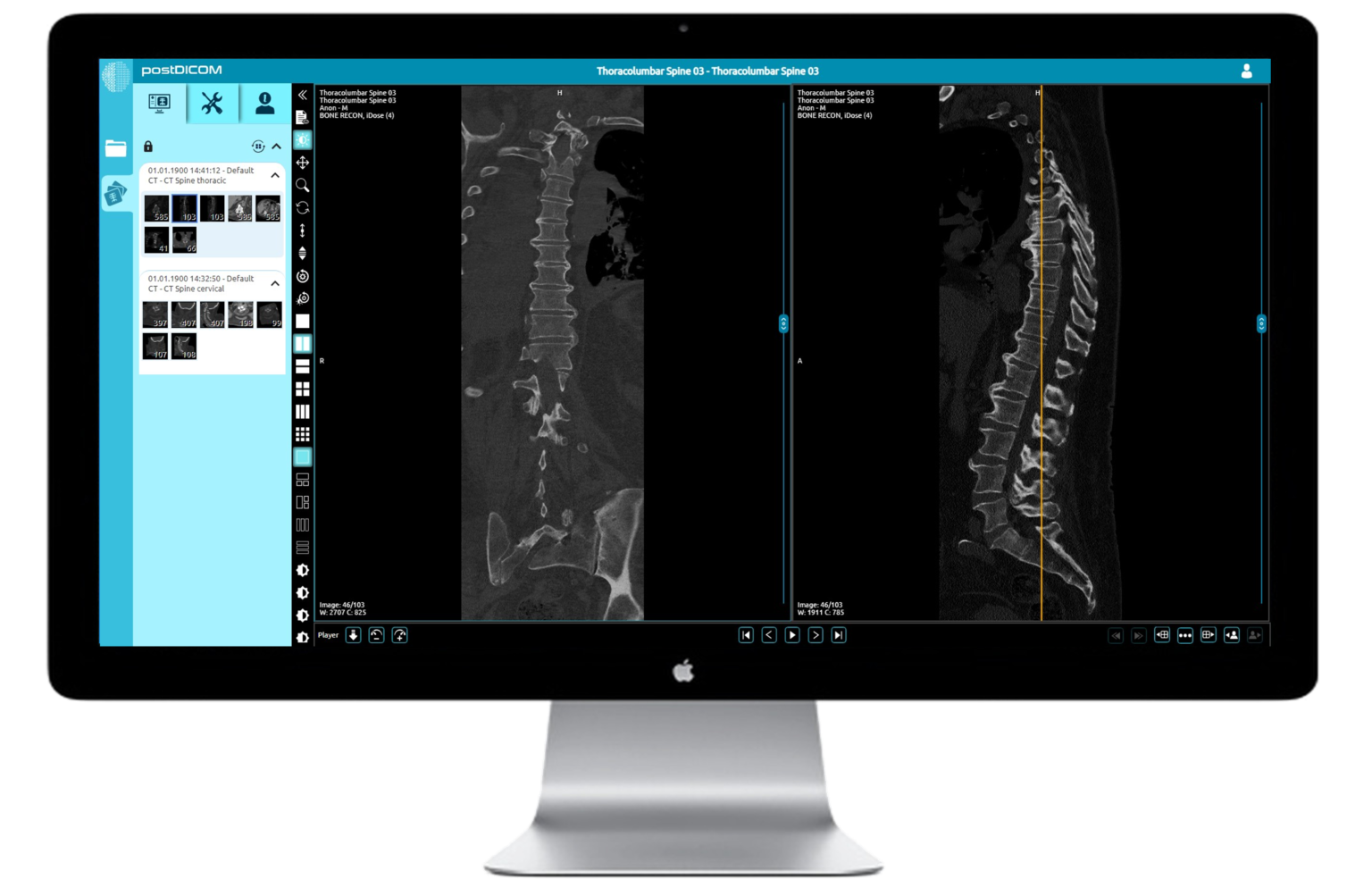
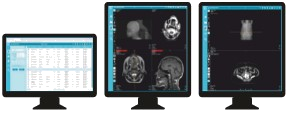

Sample the DICOM viewer here. A window will load below the buttons (best demonstrated on a computer rather than mobile device)
When will I receive my course login?
We will contact you by email one week before the course takes place with all the necessary links and joining information.
We will re-send the links the day before the course.
If you have not received an email from us please contact us at webinars@infomedltd.co.uk and we will respond ASAP.
Will I need any special software to partake?
NO. Infomed shall provide you, upon registration a link to stream the course within your web browser, or you can download a small application to run it as a separate window on your computer. If you would prefer a mobile device, we shall also include a link download an app from the Play Store/App Store.
Can I interact with the speakers?
YES! It is very much encouraged. There will be Q&A sessions chaired by Infomed. You can type your questions in the ‘chat’ facility and they will be put to the speakers.
How I do access my catch-up & CPD certificate?
You can find your catch-up in your account page.
At the end of the catch-up page you will find a link to the feedback form, which will generate your CPD certificate when you submit your feedback.
If the catch-up is not visible in your account, please contact us and we will amend your account ASAP.
How to connect to a live online course
Using the short videos below, we shall guide you through the process of joining a meeting using Webex.
If joining from your own computer
If you are connecting from your own device then it is likely that you will be able to join via the Webex application.
If joining from a trust/institution computer
However, if you are using a computer that is owned and restricted by your trust, then you may find it easier to join via your web browser. Please see the second video for guidance on this process.
Joining Webex using the application on your PC or Mac
Joining Webex using your web browser
Accessing the PACS
Using the short videos below, we shall guide you through the process of opening the PACS and then on to opening, manipulating, and closing a case.
You are welcome to access our demo case set below
View demo cases here
Password: INFOMED
Accessing the database and cases on PACS
Advanced features of PACS
I've connected to a course but can't hear anything
When you connect to a course you should see some introductory slides and hear music.
If you cannot hear any music please check you are connected to the audio.
At the bottom of the webex meeting you may see a button that says “Connect to audio”.
Click this and then select “Use computer for audio” in the pop-up box.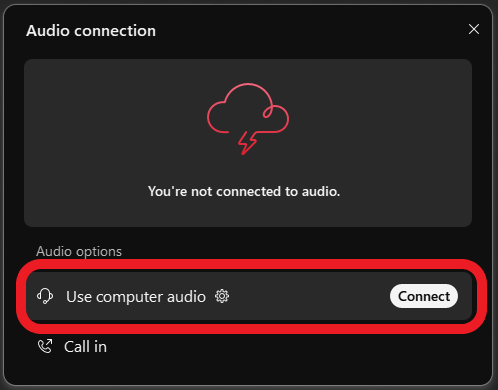
If you have connected by a browser you may need to give your browser access to your microphone in order to connect to the audio.
Click the padlock in the top left of your browser and make sure microphone access is allowed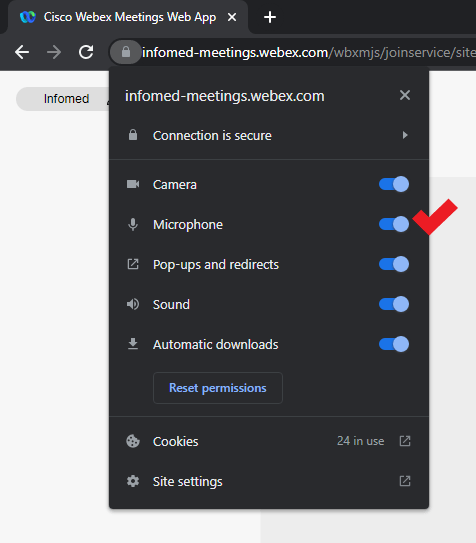
If this does not resolve your issue please email us or call us on 0204 520 5081
What do I need to join a course?
To join an Infomed Online course you simply need an internet connection and a browser (Google Chrome, Mozilla Firefox, Apple Safari).
You can also connect from a mobile device: Download the Webex Meetings app from your App Store.
To join a course with a smooth experience, your internet connection must be stable, not connected to a VPN and at least 20Mbps download.
Below you can use the tool to run an internet speed test.
You must test from:
- — the location that you intend the see the course from;
- — withing the location, if using Wi-Fi, the room or department area that you intend to view the course from to ensure a good signal
- — if connecting from home, a computer that is not connected to a workplace VPN
Speed test
Internet Speed Test
Please test your connection speed at www.fast.com
To join a course with a smooth experience, your internet connection must be stable, not connected to a VPN and at least 20Mbps download.
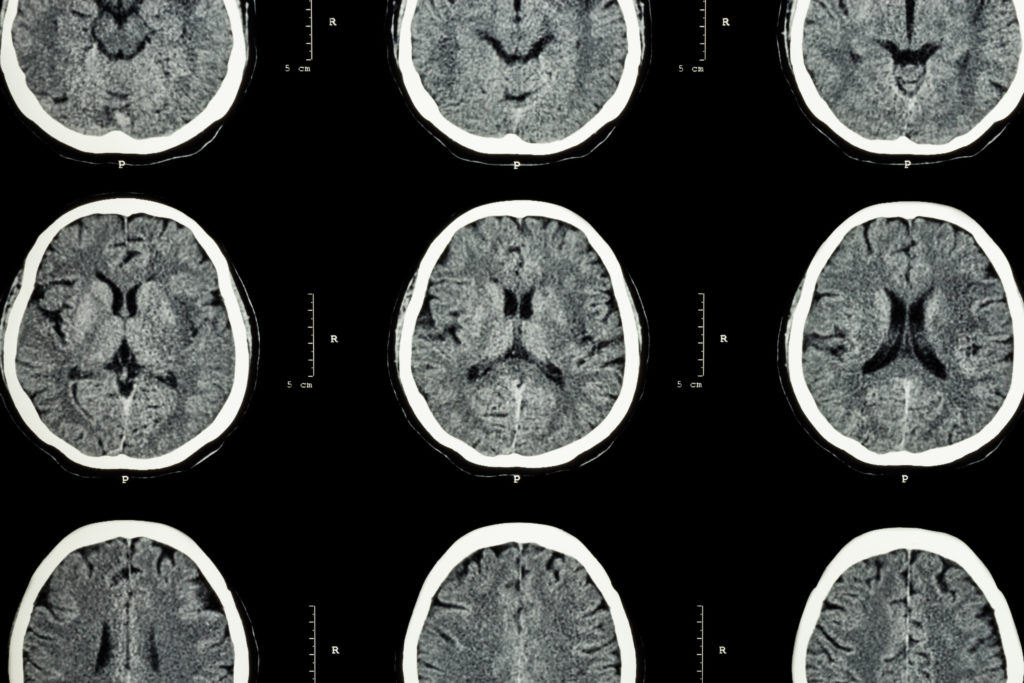
Course fee
Catch-up version
- 120 days of access with unlimited playback
£295 inc VAT
plus...
- Fee includes 120 days of access with unlimited playback during this time.
- Full access and control to the DICOM cases
- CPD Certificate of attendance upon completion with 12 CPD points
- Lots of cases to review and interpret
